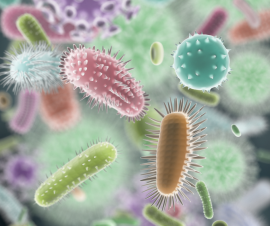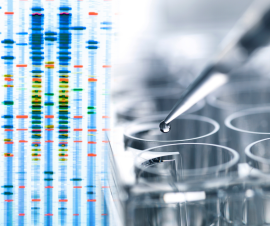August is Water Quality Month, a time dedicated to raising awareness about the importance of clean drinking water. For homeowners who rely on private wells as their primary water source, ensuring the safety of that water is crucial.
This is especially important in the Metro Atlanta and Greater Athens areas where so many of our local communities such as Rockdale, Newton, Walton, Barrow, Hall, Clarke, Oconee, Jackson, Jasper and Butts counties, all have a large number homeowners that rely on private wells for their drinking water.
Unlike municipal water supplies, which are regulated and regularly tested, private well water is the responsibility of the homeowner. Contaminants like E. coli, lead, nitrates, and nitrites can pose serious health risks if left undetected. In this blog post, we'll explore the importance of professional lab testing for well water and how to keep your water supply safe.
Why Well Water Testing is Essential
Private wells provide water to millions of homes across the country. While well water can be fresh and clean, it is vulnerable to contamination from a variety of sources, including agricultural runoff, septic systems, and natural mineral deposits. Unlike public water systems, which are regularly monitored by government agencies, private wells are not subject to federal regulations. This means that it's up to you, the homeowner, to ensure your water is safe.
Common Contaminants in Well Water

- E. Coli and Other Bacteria: Bacterial contamination is one of the most common issues with private wells. E. coli, a type of bacteria found in human and animal waste, can enter your well through surface runoff or a faulty septic system. Consuming water contaminated with E. coli can cause severe gastrointestinal illness.
- Lead: Lead can enter well water through the corrosion of old plumbing systems or naturally occurring deposits in the ground. Long-term exposure to lead, even in small amounts, can cause serious health problems, including developmental issues in children and kidney damage in adults.
- Nitrates/Nitrites: These contaminants often originate from fertilizers, animal waste, or septic systems. High levels of nitrates in drinking water are particularly dangerous for infants and pregnant women, as they can interfere with the blood's ability to carry oxygen, leading to a condition known as methemoglobinemia or "blue baby syndrome."
- Pesticides and Chemicals: Runoff from agricultural fields and industrial sites can introduce harmful chemicals and pesticides into your well water. Long-term exposure to these contaminants can lead to a range of health problems, including hormonal disruptions and cancer.
The Importance of Professional Lab Testing

While at-home water testing kits are available, they often lack the sensitivity and accuracy of professional lab tests. A comprehensive lab analysis can detect a wide range of contaminants, including those that are not easily identified with basic test strips. Here's why you should consider professional testing:
- Accuracy and Reliability: Professional labs use advanced equipment and techniques to provide precise measurements of contaminants in your water. This level of accuracy is crucial when assessing the safety of your drinking water.
- Comprehensive Results: A lab test will screen for multiple contaminants, including bacteria, heavy metals, nitrates, and volatile organic compounds (VOCs). This comprehensive analysis gives you a complete picture of your water quality.
- Expert Interpretation: Lab results can be complex. By working with a professional, you can get a clear interpretation of the results and understand what actions, if any, are necessary to protect your health.
- Regular Monitoring: It’s recommended that private well owners test their water at least once a year. If your well is near potential contamination sources, such as agricultural areas or industrial sites, more frequent testing may be necessary.
How to Protect Your Well Water

In addition to regular testing, there are steps you can take to protect your well water:
- Inspect Your Well: Regularly inspect your well for any signs of damage or deterioration. Make sure the well cap is secure and in good condition to prevent contaminants from entering the water supply.
- Properly Maintain Septic Systems: Ensure your septic system is functioning properly and not leaking. A failing septic system can be a major source of bacterial contamination.
- Keep Hazardous Materials Away: Avoid storing chemicals, fertilizers, or other hazardous materials near your well. Even small spills can contaminate the groundwater.
- Well Water Treatment Systems: Depending on the results of your lab test, you may need to install a water treatment system. Options include filtration systems, reverse osmosis units, and water softeners, each designed to target specific contaminants.
Water Quality Month is an excellent reminder for homeowners with private wells to prioritize the safety of their drinking water supply. Regular professional lab testing is the best way to detect harmful contaminants like E. coli, lead, nitrates, and more. By staying vigilant and taking proactive measures, you can ensure that your family has access to clean, safe drinking water year-round.
Don’t wait until a problem arises—call AmeriSpec of Loganville today at 770-935-4990 to schedule your well water test and gain peace of mind knowing your drinking water is safe!